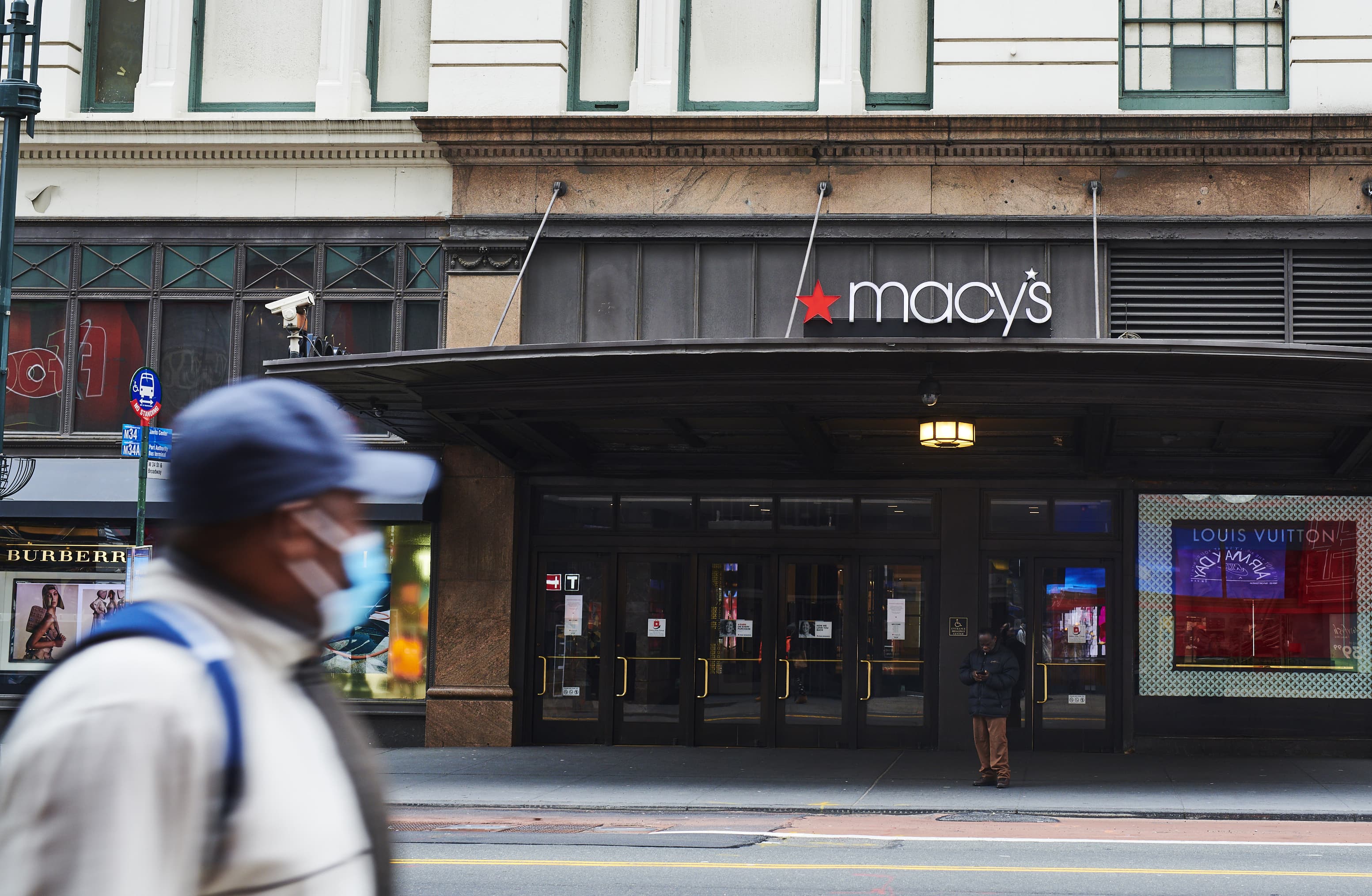Pedestrians pass in front of a Macy’s Inc. store in the Midtown neighborhood of New York, U.S., on Friday, March 20, 2020.
Gabby Jones | Bloomberg | Getty Images
The coronavirus pandemic is sure to leave many lasting effects on the retail industry, including bankruptcies, store closures and layoffs.
It could also mean a healthy fraction of consumer demand for clothes and shoes is lost forever, according to one analyst.
Five percent to 10% of pre-Covid-19 demand could be decimated permanently, as “lost store volume can’t entirely be made up online,” Wells Fargo retail analyst Ike Boruchow said in a note to clients Wednesday.
Meantime, it could take at least nine months for sales levels to reach their “new normal,” and consumers are likely not going to return to shopping like they used to until the 2020 holiday season, “at best,” Boruchow added.
Wells Fargo recently surveyed more than 1,000 U.S. consumers across various age demographics and found respondents, on average, plan to cut back their spending by roughly 8% compared with pre-Covid-19 levels. The firm said older generations are even more likely to cut back.
“Admittedly, this scenario may be overly pessimistic (after all, we asked consumers about future spending patterns during the height of a global pandemic … during ‘peak fear’),” Boruchow emphasized in his note.
However, he said, the pandemic has likely impaired consumer demand for apparel and footwear, longer-term.
Sneaker maker Under Armour, for example, is already calling for its sales to be down as much as 60% during the second quarter.
Wells Fargo’s survey further found that more than 40% of people say it will take up to three months after the end of living in a lockdown scenario to go back to stores to shop for apparel. Nearly 20% of people say it will take more than three months. About 11% of people say they will not go back to a clothing or shoe store until there is a vaccine or cure for the virus.
The one shift that many analysts agree is happening in tandem is the rapid pivot online.
Retailers that have had their stores shut for weeks because of the virus have been trying to make up for that lost traffic via their websites. Consumers are getting more comfortable than ever browsing the internet for items they used to pick up from the shelves of a department store or from the aisles of an off-price outlet.
About 25% of apparel and footwear purchases are made online in the U.S. today, according to Wells Fargo estimates. But that could quickly accelerate to 30% because of the pandemic, the firm said.
